- Old Draft: Beatles Folk Memory 1970-1995 - December 8, 2025
- Lights are back on. - December 8, 2025
- From Faith Current: “The Sacred Ordinary: St. Peter’s Church Hall” - May 1, 2023
A quick check-in with two goodies from the Pepper Super Deluxe Edition.
Ooh, Take 1! I love how HEAVY the heavy part is, and how bright and optimistic the pianet is. Nobody did dynamic range like the Beatles. You can see how easily they could’ve done “heavy” rock, if the mood had struck. I’ve always felt that a lot of what sounds light or poppy about The Beatles’ later stuff is simply their polishing process in the studio. “Penny Lane”-era Macca was apparently looking for a very “clean” sound; but I love this dirtier one, too.
And Take 12 below shows that the “buzzsaw” (George on tambura?) is probably present throughout the final track. It’s in “Within You Without You” as well, which makes me wonder: how secretly sonically unified is the album?

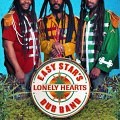
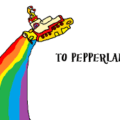
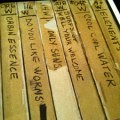



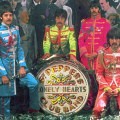
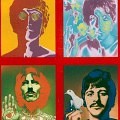
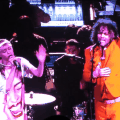
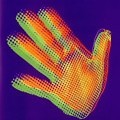


The Beatles are the MASTERS of minimalist arrangement touches that take a song to the next level. Who else would have thought of underscoring the menace of ‘I used to be cruel…she loved’ with the menace of the “buzzsaw”? And what else would have had the same impact?
Bonus points for the extra bar right afterwards that declaims ‘The band’s coming back in now’, just before the vocals resume with ‘Man I was mean’. It makes things pleasingly irregular (four bars then one then four makes nine) and the playing just kicks ass. Just like the best Kinks tracks, a lot of Paul’s more bouncy stuff has the potential to be cute but is saved by the sheer taste of the singing and playing.
That tamboura is also on Lucy in the Sky With Diamonds! And for what it’s worth, both Mr Kite (harmonium) and the reprise (organ) feature similarly drone-y instruments.
Watching Jeopardy last night, I was shocked when Trebek read a lyric from Sgt. Pepper’s, and the three contestants stared uncomprehendingly. No one could identify the “1960s Album” the lyric came from. No one even buzzed in with a wrong guess.
Even Trebek looked startled.
And here are the vocals isolated:
https://www.youtube.com/watch?v=Ws2v-uv3n8w
They really punch you in the chest with their beauty, especially the measure before the chorus.
Hunter Davies, who watched while they wrote and recorded Getting Better, wrote about the experience in the authorized biography: “In the studio itself, all that could be heard were the unaccompanied, unelectrified voices of the Beatles singing, without any backing. It all sounded flat and off-key.” (Then John went on the roof, etc.) Hearing the isolated vocals, I’m baffled by his assessment, but different strokes, I guess.
Justin, I had never noticed the extra-ness of “the extra bar right afterwards that declaims ‘The band’s coming back in now’ ” until you pointed it out! The Beatles’ irregular meters and measure counts always feel so natural–it’s never a challenge or a gimmick; just what’s right for the music.
P.S. First-time poster. I discovered this blog a few months ago–the level of analysis and insight here is an absolute treat.
Man, @Christine, those vocals are great! Did you notice the weird whistle at 0.46?
.
Davies was, and is, rather flat-footed. I mean no offense to him, I’m glad and grateful for what he did, but I don’t for a second think he got what all the fuss was about.
.
Glad you like the blog!
‘The Beatles’ irregular meters and measure counts always feel so natural–it’s never a challenge or a gimmick; just what’s right for the music.’ Just what I’ve always thought Christine. I don’t think the Beatles could ever have gone fully “prog”, for the simple reason that the rock ‘n’ roll and jazz standards of their youth were too deeply ingrained in them for them to be able to embrace showing off for its own sake. The isolated vocals are fascinating – Paul’s vocals sound so deliciously raw, and is that ‘you’re doing the best that I can’ I hear?
.
Welcome to the blog!
https://d3h6k4kfl8m9p0.cloudfront.net/uploads/2011/02/beatles-untitled-ii-medium.jpeg
I love these tracks. I remember Ringo grumbling during the Anthology days that the best bits made it to the records, but I like hearing the sausage being made.
Listening to this Take 12 again, i’m really struck by McCartney’s amazing bassline — both propulsive and melodic. I seem to recall that Pepper was the first album he went in and laid in the basslines after the song was basically done, which gave him more room for melodic content. Is that right?
That’s right Michael. He’d figured out that the whole emotional tenor of a chord comes from the note you choose on bass (or, on piano, your left hand) – it makes a big difference whether you stick to the root or play a different note within the chord. Probably inspired by Carol Kaye’s breathtaking work on Pet Sounds, which is full of similar “inversions” plus lots of clean, melodic runs up the neck. This bass approach is kind of a metaphor for Paul’s role within the band in general – directing the course of things almost unnoticeably, “from behind”.
.
Was listening to the Revolver remaster the other day through headphones and I was seriously struck by the fast and loose approach to the basslines. Paul’s very much the kind of perfectionist who arranges other people’s playing to the nth degree then goes wild himself, sacrificing perfect timing for freedom of expression. (Witness also his bonkers guitar solos, so much more exciting and spontaneous-sounding than George’s.) This is the same method of control freakery favoured by James Brown, Fela Kuti and myself, so I can dig it.
I didn’t know that. I always thought the bass & drums were done together. The bass certainly sounded more noticeable in the mix, even on my ancient Pepper album. I’d always assumed it was just improvements in recording technology.
I often find myself humming along with Paul’s basslines. So much melody along with the tasty texture.
That was Ringo’s beef with the album Sam – that instead of playing the songs as a band they assembled them like jigsaws. Hence his preference for White, which for all the “backing band” comments at least had them playing in the same room at the same time.
.
This is why musicians are the worst judges of their own songs. The stuff that’s most fun to play isn’t necessarily the most fun to listen to. Ringo probably enjoyed playing Yer Blues more than anything on Rubber Soul through MMT, but that doesn’t make it She Said She Said or Penny Lane.